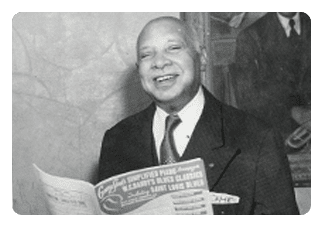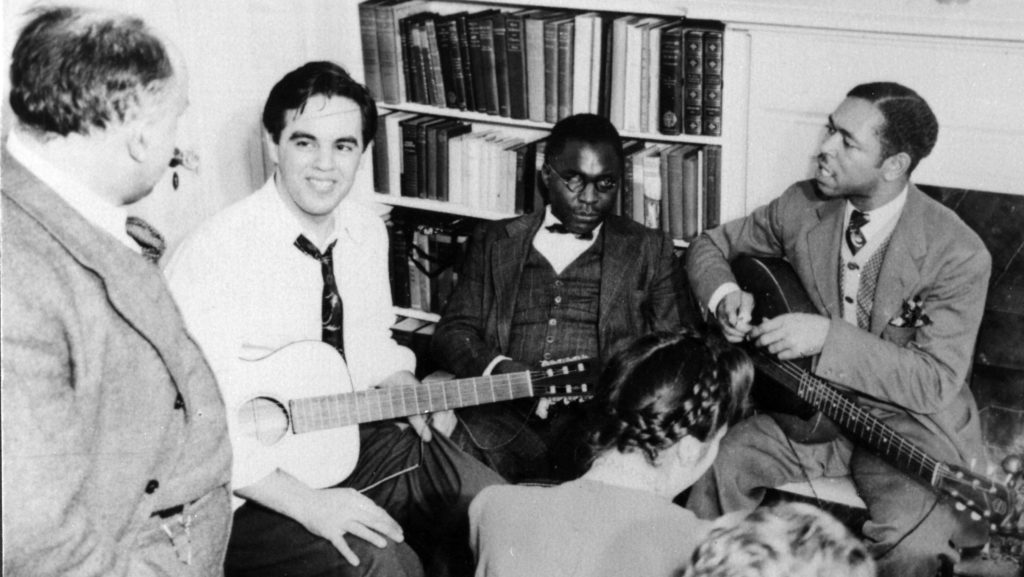The Blues: Songs of Sorrow
Where Did The Blues Originate?
The blues originated from work songs, often coming from working class blacks trying to pass the time together in prisons, on railroads, and in factories. Many of these made up songs were reminiscent of early religious songs: implementing the use of call and response among the group. These workers would use anything that they had at their disposal for instruments such as washing tubs, spoons, and hammers. Similar to how their ancestors put beats together to form folk music and negro spirituals, the workers used what they had to put express their feelings about life. Blues songs came from blacks finding a way to talk about their shared lived experiences and because of this, many of the songs were not favored by the black community. In general, the black community did not want to be constantly reminded of their daily trials during the early twentieth century. Ironically enough, the biggest fans of the blues genre were white people in America.
The Spread of the Blues
The blues became widely popular across the country and many blues musicians began going on tour and travelling to different states to put on shows. While many of these shows were derogatory Minstrel Shows featuring black performers and a white audience, blues musicians saw this as a way to spread their scope. These musicians were generally budding musicians looking to become noticed and eventually professionals. This is how the blues began to incorporate different dialects and vernacular – as musicians travelled across the country, they picked up on new slang in different regions and added it to their songs. Black theater circuits travelled the country often staying in what were coined the “buffet flats.” This meant that you could travel around and stay in peoples’ houses so that you would get a bed and hot meals while performing. One of the most notable blues singers is Bessie Smith from Chattanooga, Tennessee. She toured with minstrel shows and was popular for depicting somewhat early feminism on stage – highlighting domestic violence and even fighting back against men on stage in her shows.
Everything comes out in blues music: joy, pain, struggle. Blues is affirmation with absolute elegance.
Wynton Marsalis Tweet
Publishing The Blues

Despite the fact that blacks were not fond of listening to the blues, in 1914, writer, composer, and publisher W.C. Handy saw the opportunity to capitalize off of the genre’s biggest fans so he started to write down popular blues songs and selling them. Thus began the era of the commercialization of blues music. W. C. Handy primarily focused on the blues from Memphis, Tennessee and St. Louis, Missouri and because this was the first notable effort from a black person to write and sell black music, he labelled himself the Father of the Blues.
Race Records
In the early 1920s in New York, record companies began producing race records – records featuring black musicians. The first successful blues singers were black women because they were able to be themselves on stage and on the records while black men were often forced to represent the typical stereotypes that white people wanted to see on stage. So while black women were able to sing relatively freely in their own skin, black men were often reduced down to wearing funny clothes and running around on stage pretending to be a clown. Although the race record movement began in the 1920s, many record companies ignored black musicians. It was not really until the 1930s and 1940s when black musicians were really able to put out their own records.
The Folklorists
The only white people who were really involved in the blues were the publishers of the blues until the introduction of folklorists. John and Allen Lomax are two notable folklorists who were interested in preserving the music instead of profiting off of black musicians. Early on in the 1930s, the Lomaxes visited different prisons to record black prisoners singing their work songs together – the early form of the blues. It was here where some of the best blues singers were discovered including convicted murderer Huddy Leadbelly.


